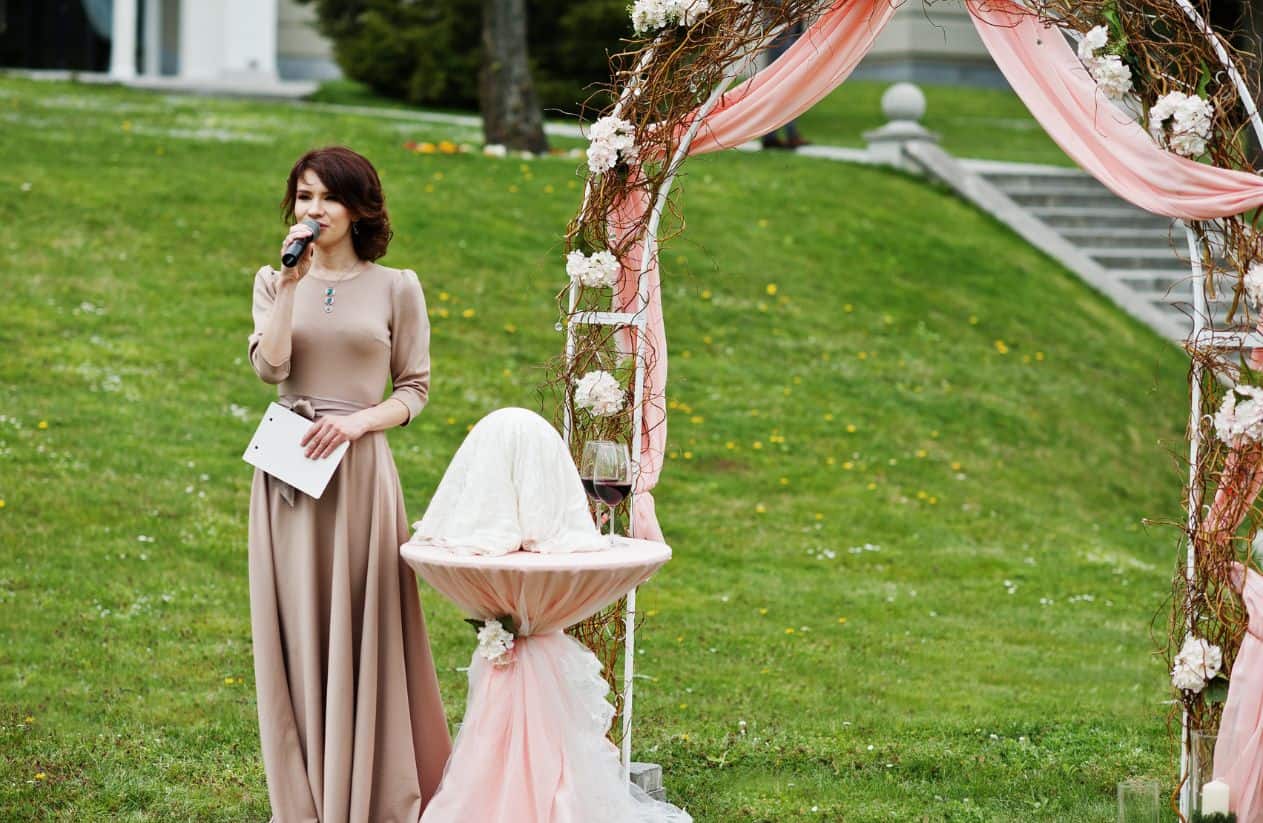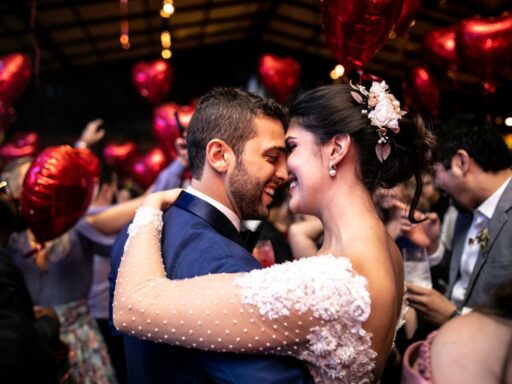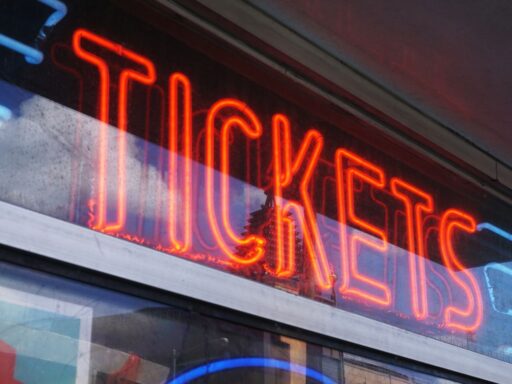Table of Contents
Understanding Your Role as a Master of Ceremonies

As an experienced event planner who has hired a significant number of Masters of Ceremonies (MCs) over the years, it’s clear that understanding your role is pivotal to the success of any event.
The role of an MC extends far beyond just speaking to an audience; it involves being the event’s linchpin, ensuring that everything runs smoothly and according to plan.
Let’s delve into the key responsibilities and how you can excel in this role.
Being the Event’s Facilitator
First and foremost, an MC acts as the event’s facilitator. This means you are responsible for maintaining the event’s flow, from the opening remarks to the conclusion of the program.
Your job involves introducing speakers, engaging with the audience, and making necessary announcements.
You’re not just a voice; you’re the guiding hand that navigates the event through its scheduled activities.
It’s essential to have a deep understanding of the event’s agenda, be adaptable and ready to handle unexpected changes or delays with grace and professionalism.
Engaging and Energizing the Audience
A key part of your role as an MC is to keep the audience engaged and energized throughout the event.
This could involve telling relevant stories, invoking audience participation, or using humor appropriately to maintain a lively atmosphere.
Remember, the energy you project will set the tone for the entire event. It’s important to read the room and adjust your approach accordingly to ensure that the audience remains attentive and enthusiastic.
Ensuring Smooth Transitions
Smooth transitions between different segments of the event are critical to maintaining momentum and keeping the audience focused.
As an MC, you’ll need to master the art of seamless transitions. This involves introducing speakers in a way that piques interest, summarizing key points from the previous segment when necessary, and effectively signaling the move to the next part of the program.
Good preparation and a clear understanding of each segment’s purpose are essential tools in achieving this.
In conclusion, mastering your role as an MC requires a blend of preparation, adaptability, and a deep understanding of the event’s goals and audience.
By focusing on facilitating the event, engaging the audience, and ensuring smooth transitions, you can significantly contribute to the success of any event.
Remember, as an MC, you’re not just part of the event; you’re the heartbeat that keeps it alive and thriving.
Essential Skills Every MC Should Master
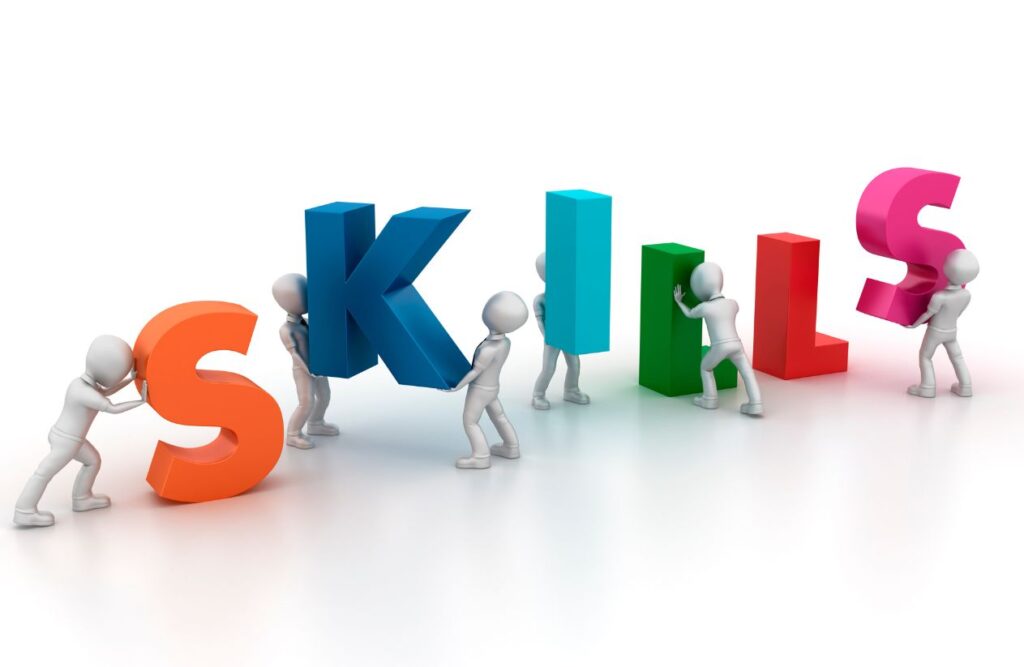
As an event planner with extensive experience hiring masters of ceremonies (MCs), I’ve observed firsthand which skills are paramount for a successful performance.
Becoming an adept MC doesn’t happen overnight; it demands dedication to mastering several key skills.
Let’s delve into some of the most essential areas every MC should focus on enhancing.
Effective Communication and Clarity
Clear and effective communication stands at the heart of what makes an exceptional MC.
This involves not just the ability to speak well but also to convey messages in a way that is easily understandable and engaging to diverse audiences.
An MC must articulate thoughts clearly, maintain a comfortable pace, and use intonation to emphasize points, keeping the audience engaged.
Moreover, mastering the art of storytelling can significantly boost the impact of communication, making events more memorable and meaningful for attendees.
Audience Engagement
The ability to connect with and maintain the attention of an audience is crucial for any MC.
This skill goes beyond merely talking to the audience; it’s about creating interactive experiences that resonate with them. Skilled MCs know how to read the room, adjusting their energy and delivery style to match the audience’s mood.
They also use questions, humor, and anecdotes to involve the audience, making the event feel more inclusive and dynamic. Engagement is the key to making each attendee feel like they are part of something special, rather than just a passive listener.
Adaptability and Improvisation
Events rarely go exactly as planned, and an MC’s ability to adapt and improvise plays a critical role in navigating unexpected changes or challenges.
This might mean filling in time if there are delays, modifying the program on the fly, or smoothly transitioning between segments when technical issues arise.
The best MCs maintain composure under pressure, swiftly adapting their approach without disrupting the flow of the event.
This requires not only a deep understanding of the event’s structure but also the confidence and creativity to deviate from the script in a way that feels seamless and intentional.
In conclusion, mastering the art of MCing is multifaceted, involving a blend of communication skills, audience engagement techniques, and the ability to adapt and think on one’s feet.
By focusing on these essential skills, aspiring MCs can elevate their performance, ensuring every event is both memorable and impactful.
Pre-Event Preparation: The Key to Smooth Execution

As an event planner with extensive experience in hiring masters of ceremonies (MCs), I’ve discovered that the cornerstone of any successful event lies in meticulous pre-event preparation.
This phase is crucial not only for you as the planner but also for the MC, ensuring they are fully briefed and ready to deliver a performance that aligns with your vision and expectations.
Laying the Foundation: Briefing Your MC
The first step in pre-event preparation involves a comprehensive briefing session with your chosen master of ceremonies.
This meeting is an opportunity to communicate the event’s objectives, theme, audience demographics, and any specific expectations you have of them.
It’s imperative to provide detailed information about the event schedule, key participants, and any special announcements or segments that will require the MC’s attention.
Sharing the backstory or significance of certain elements can empower the MC to create more meaningful connections with the audience.
Scripting Success: Co-Creating the Event Flow
Collaborating on the event script is another critical aspect of pre-event preparation.
While the MC may bring their flair and spontaneity to the event, having a structured framework provides a safety net, ensuring all critical points are covered. Discuss the overall flow of the event, key highlights, timing, and transitions.
Ensure there are clear cues built into the script for smoother execution. The aim is to strike a balance between a well-organized structure and the natural dynamism of an engaging MC.
This collaboration will also help identify any potential issues or gaps in the program, allowing for adjustments before the event day.
Technical Rehearsal: Ensuring Seamless Execution
A technical rehearsal is an often underestimated yet vital component of pre-event preparation.
This run-through allows the MC, along with the technical team, to familiarize themselves with the venue, stage setup, audio-visual equipment, and any other technology that will be used during the event.
It’s an opportune time to iron out any technical glitches and ensure the MC feels comfortable with the logistics and flow.
Encourage the MC to practice their parts, especially transitions and interactions with the audience or other speakers, to refine timing and delivery.
This rehearsal underscores the importance of preparation in achieving a seamless execution on the day of the event.
Through these steps, the goal is to build a strong foundation for the event, where both you and the master of ceremonies feel confident and prepared.
The synergy between detailed pre-event planning and the MC’s expertise is what transforms a good event into a great one.
Engaging Your Audience: Techniques That Work
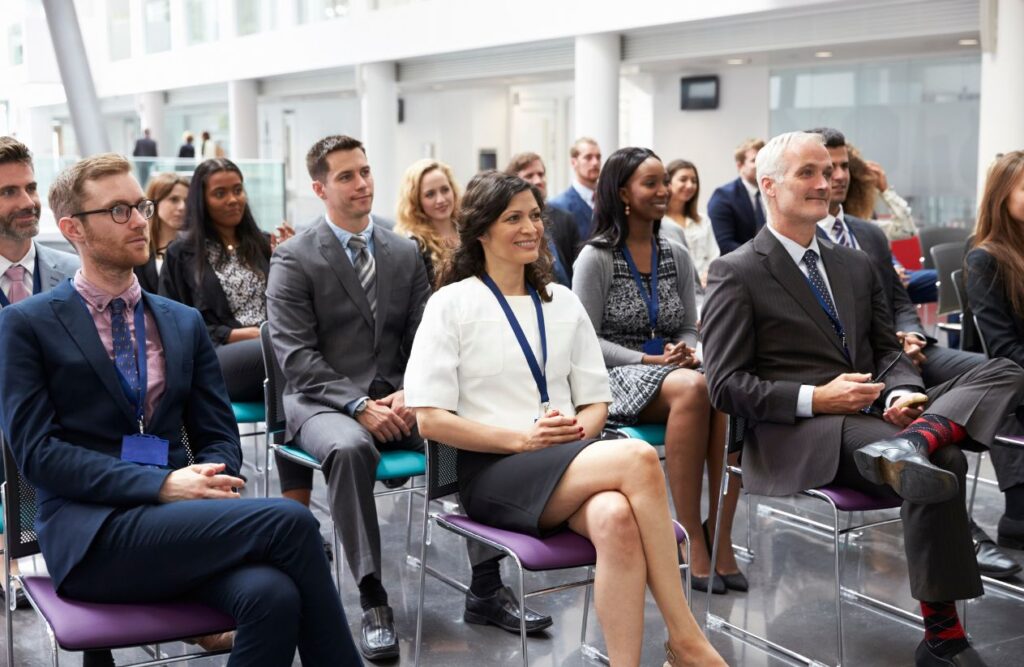
As an event planner with extensive experience hiring masters of ceremonies (MCs), I’ve observed firsthand the impact of various audience engagement strategies.
These techniques, when executed well, can significantly elevate the event experience, creating memorable moments for all attendees.
Below are some effective strategies that seasoned MCs use to captivate and maintain the interest of their audience.
Interactive Storytelling
One of the most powerful tools in an MC’s arsenal is storytelling. However, taking this a step further by making stories interactive can forge a deeper connection with the audience.
Encourage the MC to weave tales that solicit responses from the audience, whether through questions, predictions about what might happen next, or even inviting members on stage to be part of the story.
This approach not only keeps the audience engaged but also makes the event more personal and memorable.
Utilizing Humor Wisely
Humor is a universal language that relaxes and connects people. When an MC skillfully incorporates jokes or amusing anecdotes relevant to the audience or event theme, it can break down barriers and create a warm, inclusive atmosphere.
It’s important, however, to exercise discretion and ensure that the humor is appropriate for all attendees, respecting cultural and personal sensitivities.
An experienced MC knows how to strike the right balance, using humor to entertain without offending.
Interactive Polls and Q&A Sessions
Technology offers MCs innovative ways to engage the audience actively. Tools like live polls or Q&A sessions facilitated through event apps or social media platforms, can transform passive attendees into active participants.
These technologies can be used to gather opinions, answer questions in real-time, or even decide the direction of the event, giving the audience a sense of ownership and involvement in the proceedings.
Embedding these interactive elements throughout the event can maintain high levels of engagement and interest from start to finish.
Implementing these techniques requires a keen understanding of the audience and the overall atmosphere of the event.
A master of ceremonies adept at engaging the audience not only ensures the event runs smoothly but also enhances the overall experience, leaving a lasting impression on all those present.
Master of Ceremonies Guide- FAQ Section
As an event planner with extensive experience in hiring masters of ceremonies (MCs), navigating through the selection and cooperation process can sometimes present challenges.
This section aims to address some common concerns that you, as event professionals, may have based on previous experiences or uncertainties.
Here, we delve into a few frequently asked questions to help clarify these aspects and ensure a smoother collaboration for your upcoming events.
How do I find an MC who’s a good fit for my event?
Start by sharing the event theme, goals, and who your audience is. Ask for videos of past work to see their style in action. A meeting (in person or virtual) lets you judge their personality. Remember, a good MC will be adaptable, so be clear about your expectations.
How can I prepare the MC to handle unexpected situations?
Detailed briefings are key! Walk through potential problems and how to address them. Familiarity with the event schedule (especially tricky segments) helps them handle surprises. A list of key contacts (coordinator, tech team, etc.) allows for quick fixes.
How can the MC keep the audience engaged throughout the event?
Discuss the importance of interaction beforehand. Brainstorm activities (Q&A, polls, contests) that fit your event’s theme. Encourage the MC to read the audience and adjust their approach on the fly if energy levels dip.
By addressing these common concerns with careful planning and open communication, you can enhance collaboration with your chosen MC and ensure a successful event. Remember, the key to a fruitful partnership lies in aligning expectations, preparing for contingencies, and fostering audience engagement throughout the event.

